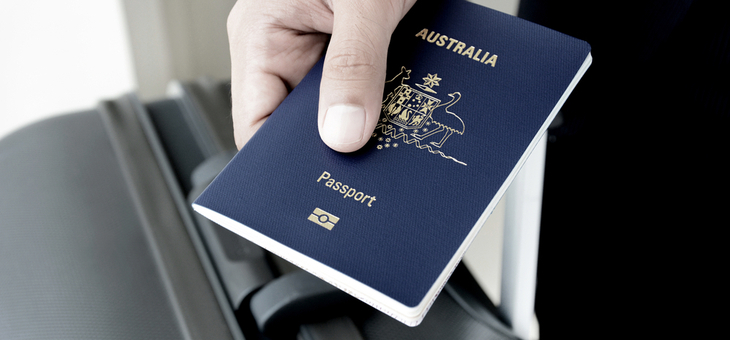International travel seems to be slowly but surely returning. With the trans-Tasman bubble and talks of another bubble opening with Singapore, things are looking up.
So, it’s not only time to dig out the suitcases and travel toiletries, you need to dust off your passport too and check the expiry date.
And remember, it’s unlikely you’ll be able to use your passport right up until the day it expires. So, if your passport expires at the end of 2021 and you don’t renew it, you could find yourself unable to take that long-awaited trip.
Read more: Will passport expiry dates be extended because of COVID-19?
Many countries require a visitor’s passport to have between three and six months of validity beyond their planned stay.
Luckily, New Zealand is less restrictive than a lot of countries.
For Australian passport holders, “your passport must be valid for enough time to allow you to travel to New Zealand,” states Immigration New Zealand. “The passport must be valid on the date you are entering/leaving New Zealand.”
But as other countries in the Asia-Pacific region join the COVID-safe bubbles, your passport will need to have a longer use-by date.
For example, Australians visiting Fiji need to have at least three months of validity after their return date left on their passport; this stretches to six months for New Caledonia visitors.
Six months validity is also needed for a trip to Singapore; six months after your return date to Australia that is. For example, if your current passport expires on 28 February 2022, you won’t be able to visit Singapore if your return flight is scheduled after 28 August 2021.
If your flight is after that date, you could be refused check-in before your flight or be denied entry upon arrival.
These rules can apply even if you’re just transiting or stopping over. Some foreign governments and airlines apply the rule inconsistently but getting it wrong can mean being stranded.
Read more: Why is your passport that colour?
Check your passport’s renewal date now to ensure you have enough time left on it to travel wherever your heart desires (when we can).
Getting a new passport
It costs $301 for a new passport that’s valid for 10 years.
The Australian Passport Office now allows what it calls “streamlined renewal”, the only requirements are that your passport:
- was issued when you were aged 16 or older
- has a validity, when it was issued, of more than two years
- was issued in your current name, date of birth, place of birth and gender
- is still current, or expired less than three years ago
- and hasn’t been reported lost or stolen, or been cancelled for any other reason
If you can tick all of those five boxes, then you need only lodge an application form (available online), two passport photos and your most recent passport, at either an Australian Passport Office or a participating post office.
How long does it take to get a new passport?
You should allow approximately three weeks to get a new passport. In Australia, passport services are operating normally but the impact of COVID could cause significant delays to postal services around the country.
If you need your passport urgently, an additional $220 for priority processing trims the turnaround time to a handful of days.
Some people are discovering their passport has already expired when they go to book flights. The good news is that you can still use the streamlined system as long as the expiry date was within the past three years.
All Australian passports issued after December 2017 have the standard 34 pages, and you can no longer choose the 66-page Frequent Traveller passport.
Read more: Passports could soon be replaced by smartphone
Unfortunately, if the pages in your passport are full, you will need to obtain a new one.
Keep in mind that many countries don’t accept visas that are in passports which are no longer valid. You may have to get new visas.
For more information, visit the Passports.gov.au website.
Will you be planning a trip to a COVID-bubble country? How long is your passport valid for? Have you ever filled all of the pages in a passport?
If you enjoy our content, don’t keep it to yourself. Share our free eNews with your friends and encourage them to sign up.

